Philanthropy and Volunteerism: Social Work
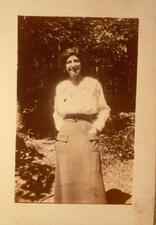
Maida Herman Solomon
Professor of social economy Maida Solomon was recognized as a pioneer in the field, contributing to the “invention” of the field of psychiatric social work and overseeing its definition, its development of standards, and its integration with the other institutions of modern American medicine and education—in short, its professionalism.
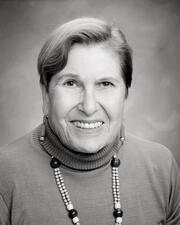
Marcia Cohn Spiegel
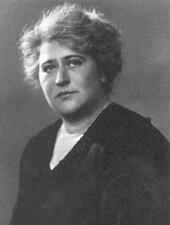
Constance Amberg Sporborg
Constance Amberg Sporborg was a career clubwoman who dedicated her life to the advancement of women’s rights, immigrant settlement, international organizations, and world peace. Working in New York City in the early twentieth century, Sporborg aided both Jews and gentiles.
Sports in the United States
Hannah Stein
Bessie Cleveland Stern
Bessie Cleveland Stern is most recognized for her work as statistician for the Maryland Board of Education. She collected and interpreted data about the Maryland school system from 1921 through 1948, and school officials turned to her for information to support appropriations measures and proposed changes in state laws relating to the schools.
Elizabeth Stern
Eva Michaelis Stern
Eva Michaelis Stern was co-founder and director of the fundraising arm of the Youth Aliyah in Germany, and later the director of the Youth Aliyah office in London. Over the course of WWII, she helped more than 1000 children from countries all over Europe immigrate to Palestine.
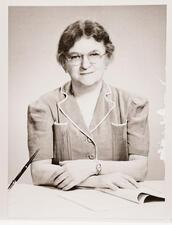
Frances Stern
Frances Stern’s experience as a second-generation American Jew dedicated to social reform and in contact with several prominent women engaged in social work led her to a career in scientific nutrition, applied dietetics, and home economics. Stern founded the Food Clinic of the Boston Dispensary, a center for dispensing practical advice on food and meal preparation for outpatients and their families that also served as a center for research on the relationships among health, nutrition, class, and ethnicity.
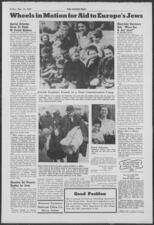
Celia Strakosch
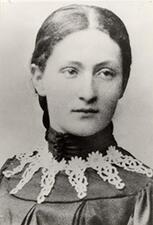
Rahel Straus
Rahel Goitein Straus, a pioneering woman medical doctor trained in Germany, was a model “New Jewish Woman” of the early-20th century. Successfully combining a career as a physician with marriage and motherhood, she committed herself to Jewish and feminist causes and organizations throughout her life, while also embracing Zionist ideals.
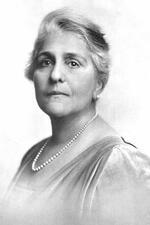
Sarah Lavanburg Straus
With the support of philanthropist Baroness Clara de Hirsch, Sarah Lavanburg Straus helped to establish two homes for immigrant girls in New York City early in the twentieth century.
Hilda Weil Stroock
Hilda Weil Stroock was a sponsor of the first Women’s Conference on Jewish Affairs held in 1938 at the Jewish Theological Seminary of America. This pioneering event reflected her lifelong interest in the welfare of women and children and the condition of the Jewish community.
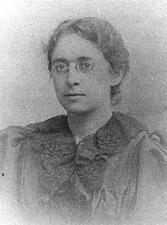
Henrietta Szold
Hannah Thon
Hannah (Helena) Thon was a social worker, journalist and editor, a student of Israel’s ethnic communities, and one of the leading figures in the women’s voluntary social-welfare organizations during the Yishuv (pre-State) period in Israel.
Union of Jewish Women
Influenced by their American counterparts, Anglo-Jewish women organized a Conference of Jewish Women in 1902, which led to the foundation of a national organization, the Union of Jewish Women. The UJW determined the social service agenda for English Jewish women until World War I.
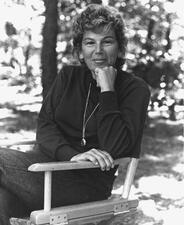
Miriam Dworkin Waddington
Miriam Dworkin Waddington was a distinguished and pioneering Canadian poet and literary critic. Her original poetry included many explicit references to her Jewish secular outlook, and other poems were infused with a commitment to social justice that drew on that same source. Impatient with the Canadian “canon” of her time, she introduced to wider audiences the works of A.M. Klein and poets writing in Yiddish with her literary criticism and her translations.
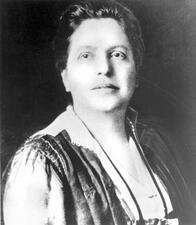
Lillian D. Wald
Guided by her vision of a unified humanity, Lillian D. Wald passionately dedicated herself to bettering the lives and working conditions of immigrants, women, and children. She founded the Henry Street Settlement in New York City and initiated America’s first public-school nursing program. A talented activist and administrator, Wald’s pathbreaking work continues to be memorialized.
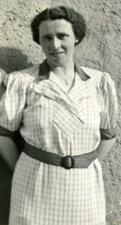
Helen Weil
Helen Weil was a devoted gerontologist in and around Cleveland, Ohio. A German-Jewish refugee herself, in addition to teaching at Western Reserve University, Weil developed thorough social services and programs for elderly Jewish residents at Montefiore Home before going on to found and direct the Schnurmann House.
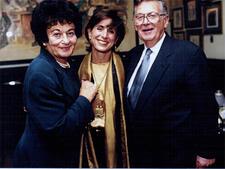
Jill Weinberg
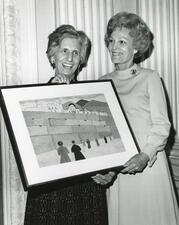
Josephine Stern Weiner

Anita Weinstein
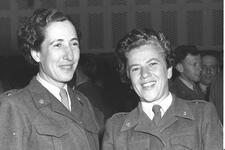
Shoshana Werner
After years of service in the Haganah and the Auxiliary Territorial Service, Shoshana Werner was appointed as the second commanding officer of the Women’s Corps of the Israel Defense Forces in 1949.
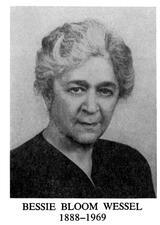
Bessie Bloom Wessel
Bessie Bloom Wessel was unique in her contributions to life in New England, both as an active citizen and as a scholar. She worked with immigrants, served on several committees, and produced significant ethnic studies.
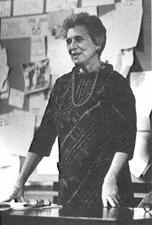
Pearl Willen
Pearl Willen was a twentieth-century social and human welfare activist and communal leader with a love for Jewish heritage. She had a lifelong record of service for such causes as civil rights, women’s rights, and the rights of workers.


